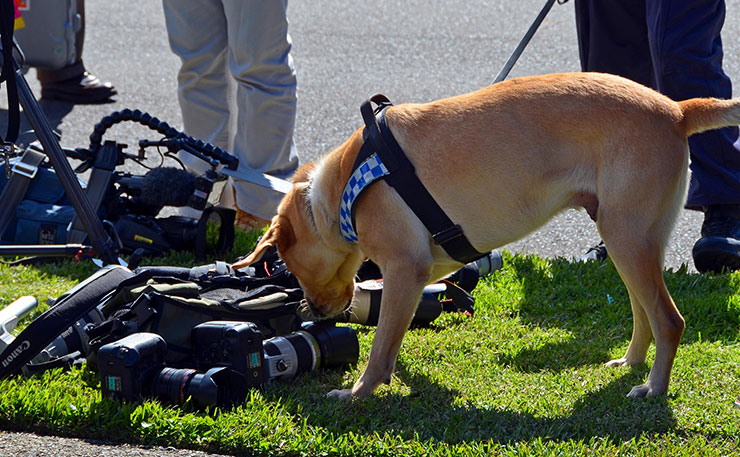The ‘war on drugs’ appears to be running out of puff. Zevic Mishor has an idea to hasten its demise.
Medical, social and legal attitudes to cannabis in NSW are changing. As jurisdictions around the world, including Portugal, Switzerland, Alaska, California, Hawaii, and Washington DC (to name a few) increasingly acknowledge the valuable medical applications of the plant as well as the basic rights of citizens to consume it if they so desire, there is growing awareness and public debate around the same themes in NSW.
In mid-2015 the Lambert family, motivated by the dramatically beneficial effects of cannabinoid treatment for their granddaughter’s chronic epilepsy, donated over $33 million to the University of Sydney (the largest gift ever made for research at that institution) for the establishment of a cannabis research centre.
Discussion of cannabis – medicinal and otherwise – is becoming increasingly mainstream, and even Alan Jones has spoken in favour of a medical marijuana program.
At the same time, however, we are witnessing an incongruous and bizarre escalation of drug detection activities by the NSW Police Force, pouring money into random roadside testing and sniffer dog efforts. Searches without a warrant of members of the public “detected” by a drug sniffer dog are an ineffective use of valuable police resources, and emerge directly from the mentality of the infamous and ailing “war on drugs”. Cannabis is the most prevalent target for sniffer dog detection, due to the highly fragrant terpene molecules it releases into the air.
In 2013, for example, the NSW Police Force conducted 17,746 searches following a positive dog indication during general drug detection operations. Out of these searches, 6,415 revealed illicit drugs being carried by the individual in question.
This means that almost two-thirds of the original drug dog detections were “false positives”, often triggered by the police officer’s subtle physical reaction, such as turning to face an individual who fits that officer’s stereotypical offender profile. The dog, highly attuned to its handler’s body language and seeking reward, then follows with a “detection”.
Looking now at those six thousand or so “true positives”, who are the police actually catching? Almost certainly, they’re catching mostly the kid with a joint in his pocket, whose threat to the social law and order is dubious.
In 2013, during general detection operations involving a sniffer dog, only 713 searches found indictable quantities of an illicit drug, and just 397 of those were considered “trafficable” quantities. This means that out of almost 20,000 individuals selected to be searched as they went about their day in a public place, only 4 per cent were carrying a substance for which they could be charged with a crime.
That substance could be half an ounce of cannabis, for example, for an occasional smoke after work. And at the pointy end of the sniffer dog enterprise, just 2 per cent of individuals searched throughout the whole year were caught with a “trafficable quantity” of an illicit drug.
The use of drug dogs on public transport is not only ineffective but also discriminatory. It discriminates through its very targeting of those who use such transport over private cars (and we can assume with fair certainty that when dealers move large quantities of drugs, they do not do so on Sydney trains).
The practice furthermore discriminates in its choice of location and subsequent implications; the sordid and oft-quoted statistic that passengers in Redfern train station are over six times more likely to be searched than those at Central station speaks for itself.
On an important emotional and moral level, uniformed police officers with dogs at train stations intimidate and alienate the public, especially youth, and those officers are a symptom of a society sorely at odds with itself. For most kids when growing up, the police are absolutely the good guys – and indeed they are, risking personal safety and well-being at all hours of the day and night in situations that would constitute nightmares for most of us.
Yet, it would be reasonable to suggest that by their late teens/early twenties, many Australian youth have come to feel the opposite about police officers.
The reasons for this shift to a negative outlook emerge from one central fact: police enforcement of drug laws.
The police force is essentially being asked to enforce laws that are unenforceable, and have been since they were enacted. Everybody involved knows this, yet the charade goes on.
Is it not time for the NSW Police Force to begin to understand this truth, and to acknowledge that its job could be carried out more easily and harmoniously, with less risk to its employees, if it became a voice for reason rather than for fear of the imaginary?
Drug prohibition, out of which the sniffer dog-use mentality emerges, has overwhelmingly failed. We don’t need to continue beating our heads against the same wall, until the blood flows, to see this.
What NSW needs is sane, rational, evidence-based policy and policing. Close to their demise, most systems – living biological ones as well as more abstract social ones such as bureaucracies – tend to give a final spasm of resistance.
The recent NSW Government’s “Stoner Sloth” campaign, as well as the sudden ramping up of roadside drug testing, appear to be such spasms.
The drug landscape is changing, and reason and sanity will prevail.
The sooner the NSW Police Force acknowledges this reality, the sooner it can get on with doing its real job, for which we should all be thankful. A cessation of drug dog games would be a welcome step in this direction.
Donate To New Matilda
New Matilda is a small, independent media outlet. We survive through reader contributions, and never losing a lawsuit. If you got something from this article, giving something back helps us to continue speaking truth to power. Every little bit counts.





